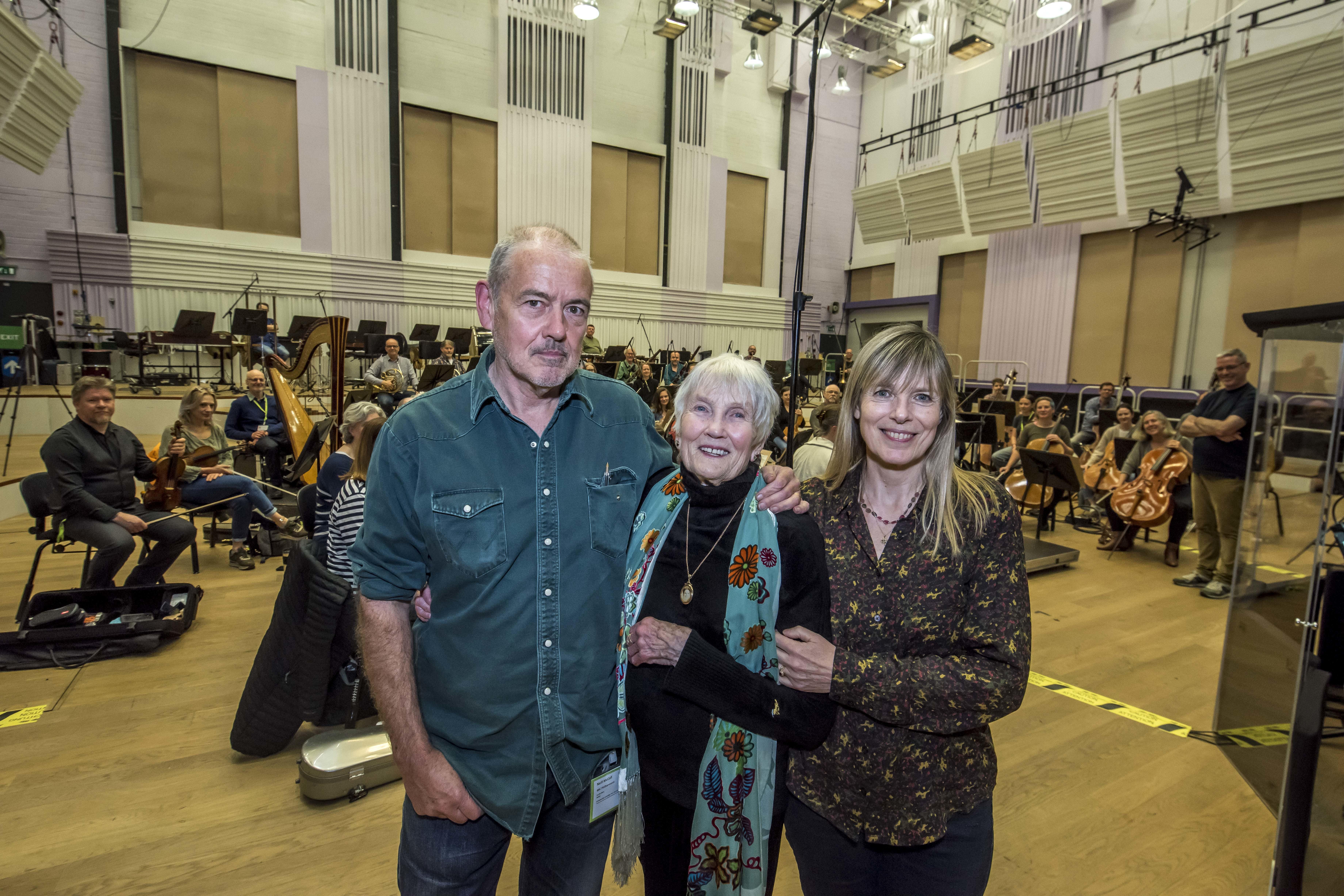Dirty Old Town re-recorded with orchestral accompaniment
Peggy Seeger’s late husband, Ewan MacColl, wrote the famous song.

Your support helps us to tell the story
From reproductive rights to climate change to Big Tech, The Independent is on the ground when the story is developing. Whether it's investigating the financials of Elon Musk's pro-Trump PAC or producing our latest documentary, 'The A Word', which shines a light on the American women fighting for reproductive rights, we know how important it is to parse out the facts from the messaging.
At such a critical moment in US history, we need reporters on the ground. Your donation allows us to keep sending journalists to speak to both sides of the story.
The Independent is trusted by Americans across the entire political spectrum. And unlike many other quality news outlets, we choose not to lock Americans out of our reporting and analysis with paywalls. We believe quality journalism should be available to everyone, paid for by those who can afford it.
Your support makes all the difference.The song Dirty Old Town is to be given a new lease of life more than 70 years after it was first released – with an orchestral accompaniment recorded in the city which inspired its lyrics.
Peggy Seeger, 88, whose late husband Ewan MacColl wrote the famous song about Salford in Greater Manchester, has recorded the track with an accompaniment from the BBC Philharmonic Orchestra and will perform an abandoned verse from it at a festival next month.
Seeger, an American folk singer, said it was the first of MacColl’s music she heard him perform, after they met when she came to the UK in 1956.
She said: “I think he was infatuated with me at the time. He was 41, I was 21. And he brought me to Salford to show me where he had grown up.
“So I tied Dirty Old Town to Salford in an indissoluble knot. It told me about where he’d been brought up.”
The song, first released in 1952, went on to be covered by The Dubliners and The Pogues.
MacColl, the father of late singer Kirsty MacColl, also wrote The First Time Ever I Saw Your Face, which was covered by Roberta Flack, for Seeger.
He was known for his political views and at one time was under surveillance by MI5 because of communist sympathies.
Seeger returned to Salford, now home to MediaCity UK, to record the orchestral version of Dirty Old Town for a BBC Radio 4 documentary.
She said the area was completely different from her first visit.
She said: “It was out of Dickens back then. Cobbled streets and gaslights and little urchins playing in the streets.
“But there are still dirty old towns in this country, still back in the Victorian era, they do exist.”
Seeger described it as an “honour” to work with the BBC Philharmonic, along with her son Neill MacColl and his wife, musical director Kate St John.
An extra verse was included when MacColl first wrote Dirty Old Town for his play Landscape With Chimneys, but he later removed it.
Seeger, who will perform the abandoned verse at the We Invented the Weekend festival in Salford on June 16, said it contained “wonderful” images but did not “sing well”.
She said: “I’m going to sing it as a solo verse. I’m not going to include it in my singing of the whole thing because it would be offensive.”
The musician, known for writing feminist tracks such as Gonna Be An Engineer, said she believed it was “vital” artists voiced their political views.
“Music expresses something that speech does not,” she said.
Asked if there were enough musicians doing that, she said: “Good Lord, no. There never has been. The money comes from the establishment and the establishment doesn’t want to fund people talking against it.”
But Seeger, who said she believed much had changed “for the worse” since she started performing almost 70 years ago, does not think folk music is the answer to all the world’s problems.
“I don’t think folk song is going to save the world,” she said.
“I think it’ll help people to survive the changes.”
She plans to continue performing until she is 90 – with hopes of a farewell tour for next year.
Seeger said: “It’s time to give up. I’ll start doing other things that I want to do.”
The We Invented the Weekend free festival is being held in Salford on June 15 and 16 and the Archive on 4 documentary on Dirty Old Town will be available on BBC Radio 4 and BBC Sounds from July 6.